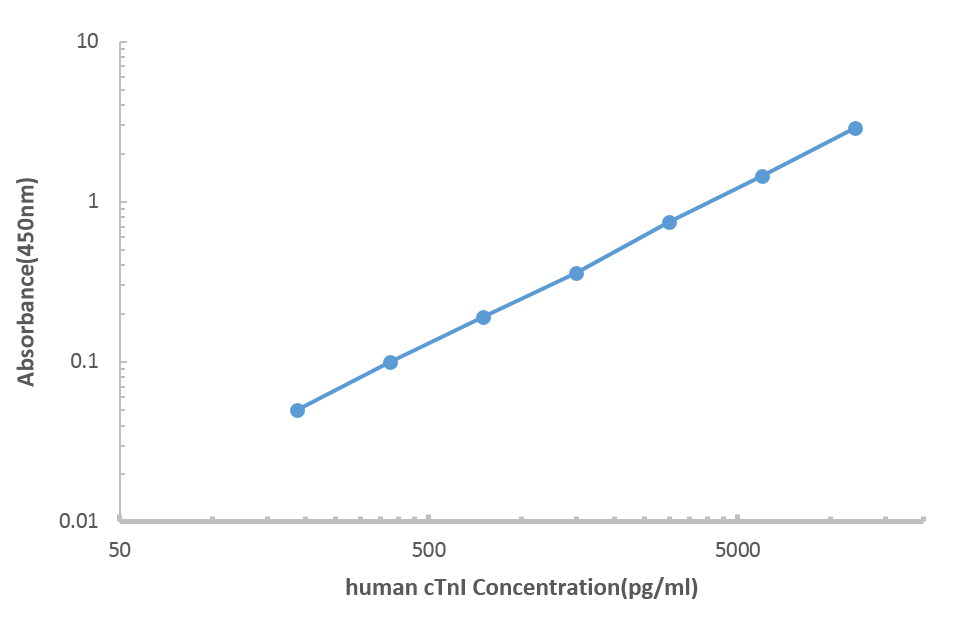Human Cardiac Troponin I (TNNI3) ELISA KIT (96 T)
CNY 3,200.00
货期*
3周
规格
Specifications
| Product Data | |
| Description | Human cTnI Immunoassay |
| Size | 96 T |
| Format | 96-well strip plate |
| Assay Type | Solid Phase Sandwich ELISA |
| Assay Length | 4 hours |
| Signal | Colorimetric |
| Curve Range | 187.5-12000pg/ml |
| Sample Type | Serum, plasma, Cell culture supernatant |
| Sample Volume | 100 uL |
| Specificity | This assay recognizes both natural and recombinant human cTnI. |
| Sensitivity | 35pg/mL. |
| Reactivity | Human |
| Interference | No significant interference observed with available related molecules. |
| Components |
|
| Background | Troponin is a complex of three regulatory proteins (troponin C, troponin I, and troponin T) that is integral to muscle contraction in skeletal muscle and cardiac muscle, but not smooth muscle. Cardiac Troponin I (cTnI) is a protein that in felines is encoded by the TNNI3 gene. It is a tissue-specific subtype of troponin I. It has been shown to interact with PKD2L1, Troponin C type 1 and Polycystic kidney disease 2. An increased level of cTnI in the blood has been shown to be a biomarker of heart disorders, the most important of which is myocardial infarction (MI). Raised troponin levels indicate cardiac muscle cell death as the enzyme is released into the blood upon injury to the heart. It is measured in the blood to differentiate between unstable angina and MI (heart attack) in people with chest pain or acute coronary syndrome. A person who had had a MI would have an area of damaged heart muscle and so would have elevated cardiac troponin levels in the blood. This can also occur in people with coronary vasospasm, a type of MI involving severe constriction of the cardiac blood vessels. After a MI cTnI may remain high for up to 2 weeks. It is important to note that cTnI is a marker of all heart muscle damage, not just myocardial infarction, which is the most severe form of heart disorder. However, diagnostic criteria for raised troponin indicating MI is currently set by the WHO at a threshold of 2 ug or higher. CTnI is also increased in patients with heart failure, where it also predict mortality and ventricular rhythm abnormalities. They can rise in inflammatory conditions such as myocarditis and pericarditis with heart muscle involvement (myopericarditis). cTnI can also indicate several forms of cardiomyopathy. In a community-based cohort study indicating the importance of silent cardiac damage, troponin I has been shown to predict mortality and first coronary heart disease event in men free from cardiovascular disease at baseline. |
| Gene Symbol | TNNI3 |
Documents
| Product Manuals |
Customer
Reviews
Loading...


 United States
United States
 Germany
Germany
 Japan
Japan
 United Kingdom
United Kingdom
 China
China

